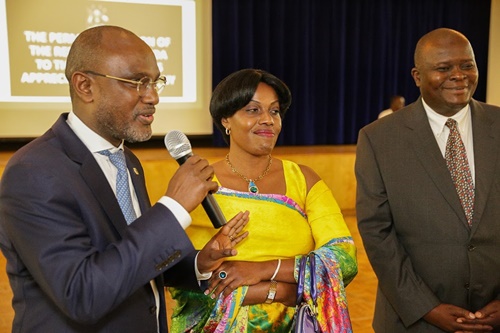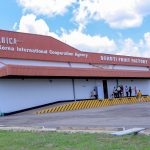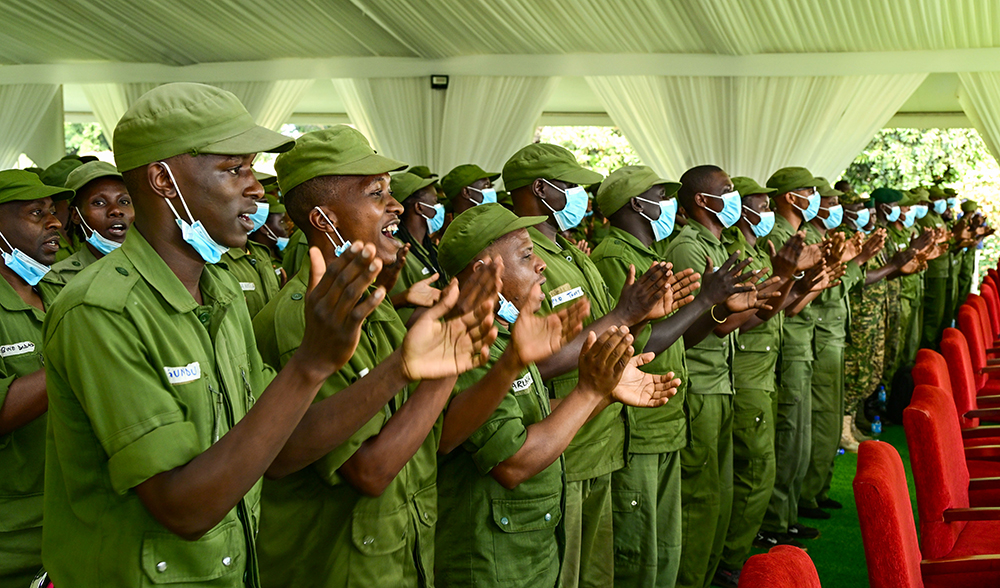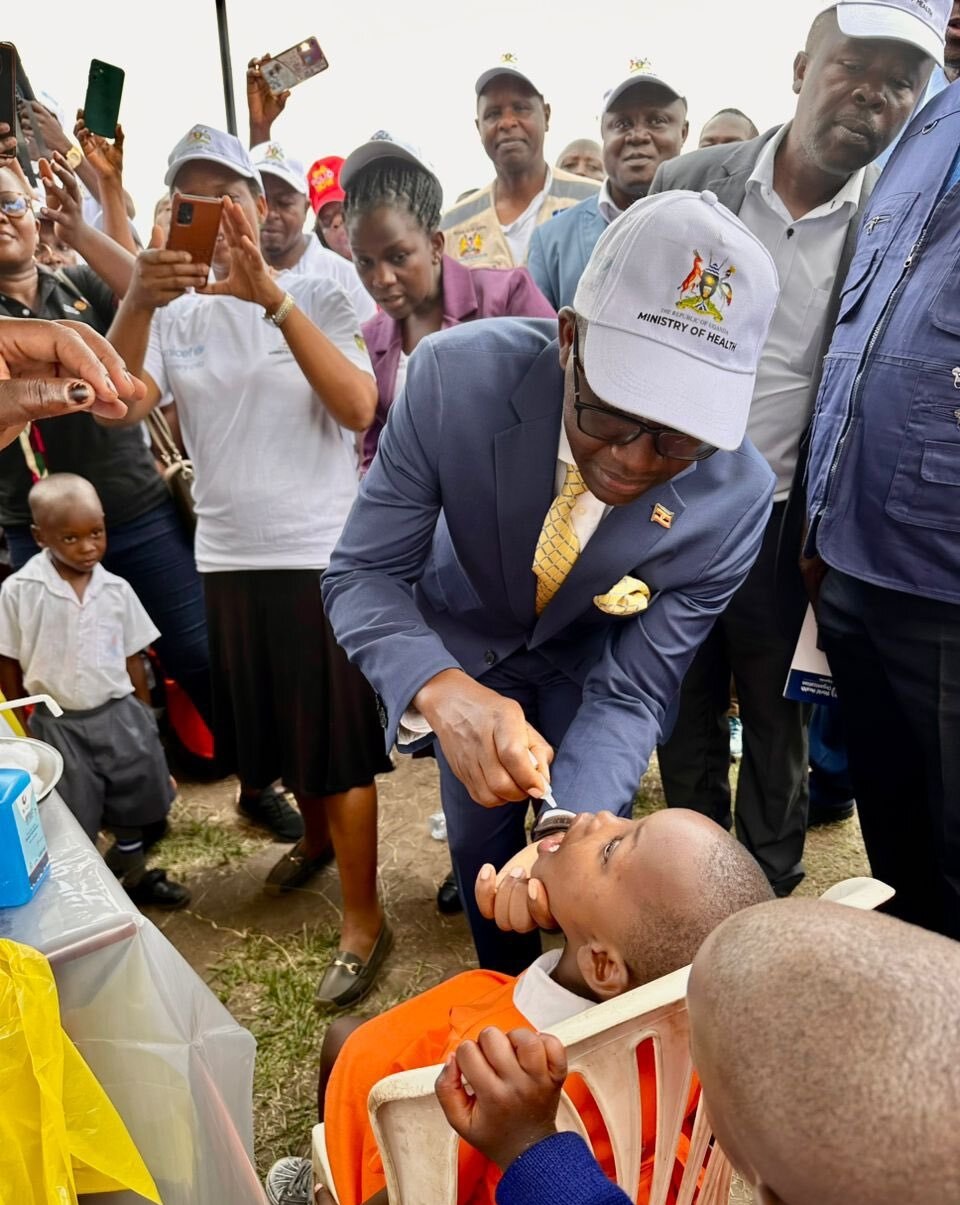In a baffling move, the Ugandan government has sent not one, but two delegations to the 78th United Nations General Assembly (UNGA) in New York, leading to confusion and raising questions about the purpose and cost of such excessive representation.
Initially, President Museveni had designated Vice President Jessica Alupo to represent Uganda at the UNGA. However, Prime Minister Robinah Nabbanja surfaced with another delegation of her own, swelling the number of officials representing Uganda to a staggering 71. This decision has not only caused diplomatic confusion but also headaches for the hosts.
The Ugandan Mission to the United Nations, responsible for coordinating the country’s activities at the UNGA, had prepared for a 51-member entourage led by Vice President Jessica Alupo. Foreign Affairs Minister Gen Jeje Odongo had officially named Alupo as the head of Uganda’s delegation in an “instrument of appointment” dated August 29. This initial delegation included several ministers and high-ranking officials.
This year’s UNGA primarily focuses on Sustainable Development Goals (SDGs). It was expected that officials like the head of the delegation, the Foreign Affairs minister, the SDG lead, the Health minister, and a few technocrats would suffice for Uganda’s representation. However, the decision to send 71 officials drew sharp criticism for its extravagance.
Critics argue that about ten officials would have been adequate to represent Uganda effectively at the UN General Assembly. This number would have included the nine staff members of Uganda’s Mission to the UN in New York, led by Ambassador Adonia Ayebare and his deputy Ambassador Godfrey Kwoba.
However, the Vice President’s team from Kampala, according to Minister Odongo’s circular, included Health minister Ruth Aceng, Water and Environment minister Sam Cheptoris, State International Affairs Minister Okello Oryem, and even the spouses of some of the principals. The Prime Minister and Foreign Minister Odongo flew to New York from Cuba, where they attended the reopening of Uganda’s embassy in Havana. Yet, another 20-member delegation led by Prime Minister Nabbanja was already in the air.
This alternate team, referred to as an “addendum delegation,” was appointed by the State Minister for Foreign Affairs in charge of Regional Cooperation, Mr. John Mulimba, whom Gen Odongo had designated as an understudy. This move increased the number of Ugandan officials attending the UNGA to a bewildering 71, causing confusion and frustration among those trying to manage the logistics.
Although Foreign Affairs Ministry Permanent Secretary Mr. Vincent Bagiire confirmed that President Museveni assigned VP Alupo to head the Ugandan delegation, he argued that Nabbanja’s attendance was relevant because her office hosts the SDG unit and coordinates all government ministries, departments, and agencies tasked with implementation. Critics, however, remain unconvinced about the unique value Nabbanja brought to the session, especially since General Duties Minister Lumumba, who is the SDG lead, was already part of the Vice President’s team.
Efforts to reach the Prime Minister for an explanation on the duplication of representation were unsuccessful. The spokesperson for the Office of the Prime Minister, Mr. Charles Odongtho, did not respond to inquiries regarding the matter. Furthermore, Nabbanja’s team lacked an official from the SDG secretariat in her office, raising questions about the delegation’s alignment with the UNGA’s focus on SDGs.
The presence of Nabbanja’s team in New York left officials at the Permanent Representation scrambling to accredit them and determine their roles, considering they had already accredited the Vice President’s 51-member entourage. To avoid further confusion, the Prime Minister was accredited as an advisor, a lower-ranking position than a delegate or head of delegation. Despite this, she participated in several events, including a meeting on the Sustainable Development Goals and a side event where economist Jeffrey Sachs delivered an address.
By protocol, Vice President Alupo is Uganda’s second-highest-ranking official, while the Prime Minister ranks eighth. In a well-coordinated government, such parallel representation of the country at any event, whether domestic or international, should not occur. Sending such a large delegation, which outnumbers delegations from wealthier nations, has exposed the Ugandan government to scrutiny for wasteful spending, especially when considering the expertise required for a summit like the UNGA.
This decision to send two parallel teams comes at a time when the Finance Ministry announced plans to downsize Uganda’s budget following the World Bank’s decision to freeze approval of new loans due to Uganda’s enactment of the Anti-Homosexuality Act. It raises questions about the government’s priorities and fiscal responsibility.
When questioned about the concerns of duplicated and bloated representation, Ambassador Adonia Ayebare, Uganda’s permanent representative to the United Nations, declined to comment, stating that they were having a “successful week.” He highlighted the participation of Vice President Alupo in high-level SDG and climate change summits and her upcoming meetings with heads of states and UN officials.
Uganda’s primary goal at the UNGA is to lobby eligible UN member states for a record attendance of both the Non-Aligned Movement (NAM) and G77 summits, events that Kampala is preparing to host early next year. However, with the excessive delegation in New York, doubts are raised about the effectiveness of this lobbying effort.
Investigations revealed that some ministers on the Prime Minister’s team had no formal programs and were seen holidaying at a hotel in downtown Manhattan or going shopping. This further raises questions about the necessity of their presence at the UNGA.
Prime Minister Nabbanja’s previous actions have also come under scrutiny, such as her decision to travel to New York last year with a large delegation to attend a 90-minute UNGA Platform of Women Leaders meeting, despite only having one senior technical officer from the SDG Secretariat. This visit incurred expenses that the Uganda Mission to the UN requested OPM to clear.
The ongoing 78th UNGA Session has attracted numerous heads of states and state representatives under the theme “Rebuilding trust and reigniting global solidarity: Accelerating action on the 2030 Agenda and its Sustainable Development Goals towards peace, prosperity, progress, and sustainability for all.”
In light of this excessive representation and concerns about fiscal responsibility, Uganda’s decision to send two parallel teams to the UNGA has drawn criticism and scrutiny, leaving many questioning the value and purpose of such a large entourage at a summit focused on global development goals.




















